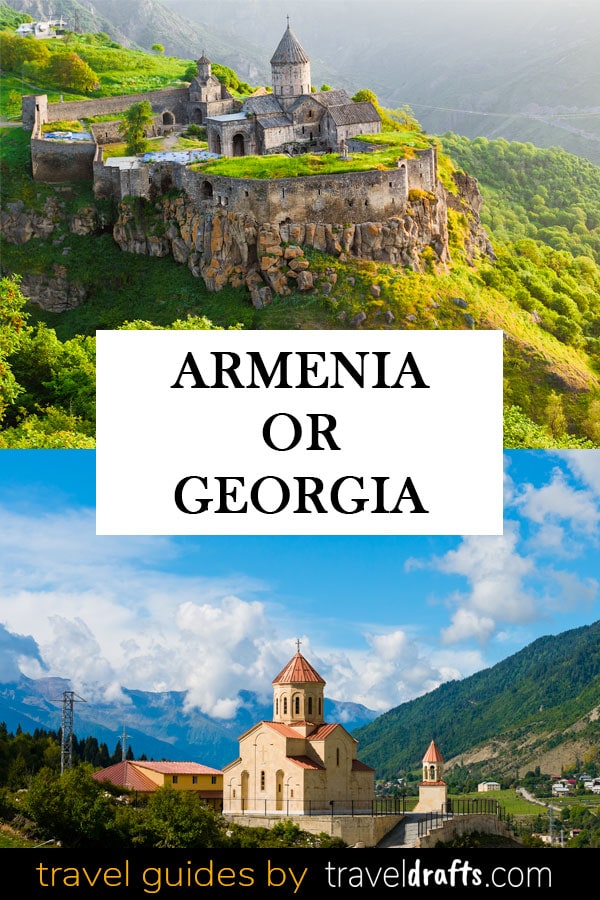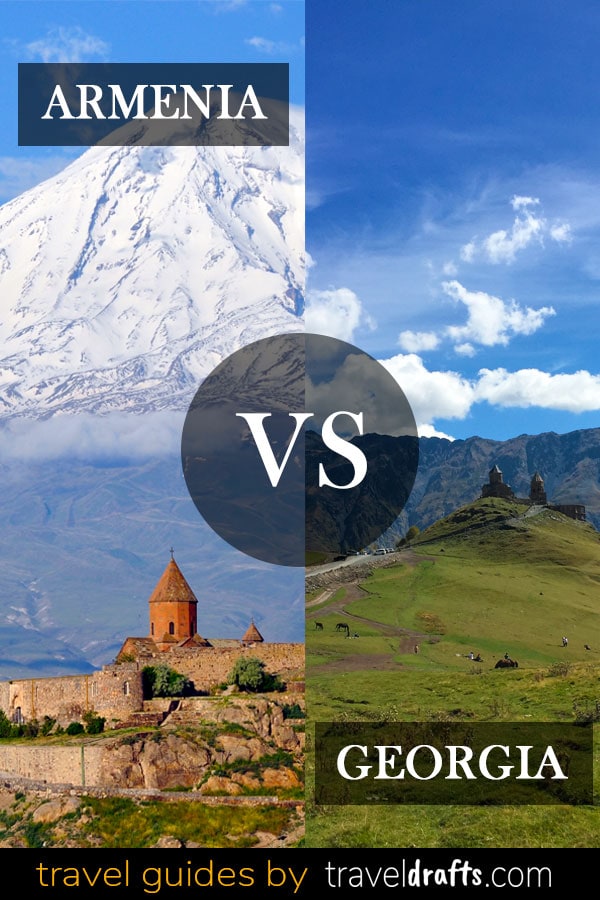Man, I just got back, and honestly, my brain is still sorting out what I experienced. You see the title: Armenia vs. Georgia. I didn’t go there to write a travel guide; I went because I got into this stupid argument with an old colleague about which country had the better claim to being the true “cradle of wine.” Yeah, I know, super dumb reason, but it escalated. He swore by Georgia, I was skeptical, so I figured the only way to shut him up was to haul my butt over there and document everything myself. That’s how this whole mess started.

The Messy Start: Booking and Initial Confusion
I started planning this thing six months ago. My approach is always cheap, fast, and dirty. I snagged open-jaw tickets—fly into Yerevan, take buses and trains across the border, fly out of Tbilisi. I decided I wasn’t going to rely on those glossy tourist brochures. I wanted the ground truth.
The first thing I realized when I dove into the history was that I knew nothing. Absolutely zip. Everything I read seemed to contradict the next source. I tried to focus just on the basics: the timeline of their conversion to Christianity, and who owned the land when. It’s a total headache. The Armenians claim to be the first state to adopt Christianity, way back in 301 AD. The Georgians have their own foundational myths, slightly later but equally dramatic. Trying to untangle who influenced whom felt like trying to unspool wet spaghetti.
I structured my research by splitting it into three chunks: Ancient History/Religion, Modern Culture/Vibe, and Practical Stuff (like finding food and not getting ripped off).
- Armenia: Research showed me ancient monasteries carved into rock, heavy emphasis on their alphabet (a point of serious national pride), and, inevitably, the dark history surrounding the Genocide. It sounded deep, heavy, and very focused inward.
- Georgia: Everything pointed to wine, mountains (Svaneti kept popping up), and a very lively, slightly more chaotic capital in Tbilisi. It seemed more outward-looking and immediate.
I packed light. One backpack. I figured if I needed anything, I’d buy it there. This was purely a reconnaissance mission, not a vacation.
On the Ground: The Immediate Culture Shock
I landed in Yerevan first. The moment I stepped out of the airport, the air felt different. Drier, dustier, older. I rented a beaten-up Lada for the first week to drive out to the border regions and see some of the famous churches like Khor Virap and Geghard.

Armenian Culture: What I picked up immediately was the quiet intensity of the people. They’re reserved, but when they invite you in, they treat you like family. Food is solid and hearty, but perhaps less varied than I expected. Think lots of lavash, stew, and strong brandy. The history here is worn on their sleeves; every conversation eventually veers toward their survival and their connection to the land. I spent a whole day near the Turkish border just looking at Mt. Ararat—that mountain is literally their soul, but it’s sitting in another country. That realization hit hard.
Crossing the Border: I took a marshrutka (a minivan taxi) across the border. It was bumpy, crowded, and took forever. But the second I stepped into Georgia, things shifted.
Georgian Culture: Tbilisi exploded at me. It felt like a much faster city, a blend of ancient architecture and weird, modern, glass blobs. The people were instantly louder, more effusive, and way more focused on feasting. Oh man, the food. Khachapuri (the cheese bread boat) is everywhere, and the wine culture is just unbelievable. I spent three days just hitting up small wine cellars in Kakheti. That’s when I had to admit my colleague might have been right about the wine. They still use those traditional clay pots (qvevri) buried in the ground. It felt ancient and current all at once.
The Comparison Realized: History and Expectation vs. Reality
The biggest difference wasn’t the food or the mountains; it was the vibe created by their recent history.
In Armenia, the struggle for identity felt existential. Everything is tied to the trauma of the early 20th century. This makes them incredibly resilient, but it also gives the country a more serious, almost melancholic feel. The focus is on preserving the past.

In Georgia, while they’ve certainly had massive conflicts (especially with Russia recently), the focus felt more entrepreneurial and forward-looking. They’re building, they’re celebrating, and they seem slightly less burdened by the weight of ancient empire shifts. They’re focused on the future.
Here’s the quick list of my findings:
- Accessibility/Ease of Travel: Georgia wins. English is more widely spoken, and the tourism infrastructure is better developed.
- Historical Depth (Monasteries/Churches): Armenia is unbeatable for sheer antiquity and dramatic location of their religious sites.
- Food & Drink: Georgia, hands down, if you want variety, amazing street food, and world-class wine. I mean, Khinkali (dumplings) alone are worth the trip.
- Cost: Both are relatively cheap by Western standards, but Georgia felt marginally cheaper, especially for accommodation and transport.
- People: Both were incredibly welcoming. Armenians felt like the older, wiser uncle; Georgians felt like the fun, rowdy cousin.
When I finally messaged my old colleague, I admitted the wine culture in Georgia blew my mind, but I also told him he was missing out if he hadn’t experienced the raw, rugged soul of Armenia. It’s not about which is “better”—it’s about what you’re looking for. I went there to compare two countries, but I ended up discovering two completely unique, resilient worlds right next to each other. It was exhausting, confusing, and absolutely necessary. Go see them both.
